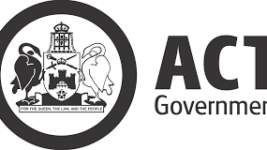Subscribe to CX E-News
by Julius Grafton
While Melbourne is lauded as one of the most vibrant music venue cities, NSW faces the reality of a re-elected state government that fought an election partly defined by its ‘War on Festivals’ and standing firm on ‘lock-out laws’ that have crippled nightlife. Plus the chronic shortage of live theatre space, which became a minor issue when the Minister for the Arts announced the government had saved the long-dark Theatre Royal.
Both are in focus because the tender for the ‘long term lease’ of the Theatre Royal is now closed, and the NSW Ministry of Health today convened a consultation meeting of music festival promoters. They emailed around 100 music industry leaders and somehow forgot about privacy laws by including everyone’s contact details. That doesn’t instil confidence, nor does the language around ‘further enhancing harm minimisation’.
While the NSW Government hopefully attempts some mitigation on the extreme measures imposed over festivals, Bluefest boss Peter Noble maintains he will move the festival out of NSW after next year unless there are significant changes to expensive police user-pays and over the top medical staffing. NSW has suffered a decline in overall box office revenues and venue turnover that threatens to roll off the cliff.
Just before the state election in late March, a further row broke out when it appeared the NSW Government had also commenced a war on MIRRORBALLS!
Contained within a recent Inquiry Into the Music and Arts Economy is a section where NSW’s assistant police commissioner Mark Walton answers a question about venue decorations that may need to be regulated:
“Venue decorations such as a mirror ball in and of themselves are not considered a significant issue. However, the installation of a mirror ball implies an intent to provide for a dance floor. The inclusion of a dance floor would need to be considered in a Development Application approval. Police would have concern that the installation of a mirror ball in a premise that has not been approved for a license that allows for the dance floor could mean that the premises is being used for purposes not allowed for by the given conditions.”
Quite. We think Mirrorballs imply fun, and the best fun of all is had in your home once the sun goes down, isn’t it?
But being serious, the Theatre Royal tender is a hot topic, and word has it there are just a few non-conforming bidders. CX understands Howard Panter’s Trafalgar Entertainment from London, led locally by Tim McFarlane is one, and Stephen Found’s Foundation Theatres is another.
As reported earlier, the tender contains a poison pill in the form of a $37 million ‘contribution’ required by the owners of the MLC complex in whose basement it resides. Developer Dexus plan to rip apart the seven levels of retail above the theatre to gain better rentals, as the site abuts the most expensive shopping strip in Australia, the Pitt Street Mall.
Architect plans seen by CX show the theatre foyer and entry extensively remodelled to harmonise with the rest of the retail podium. For that work, Dexus require $37 million up front, before any theatre operator walks in the door. Then the operator would face works costing at least $10 million, with no expansion of the 1,100 seats, to get the theatre working. Expanding the seating by rebuilding the circle would cost north of $20 million.
All of that is before any rental is agreed, and with the rest of the complex repositioned for luxury retail it is not hard to see how the NSW Government could simply announce they have no viable tender and walk away. Because the NSW Government did not ‘save’ the Theatre Royal at all. They simply took a lease option, with a ‘get-out’ clause, to try to appear like they care about the Arts before the election.
Across town the troubled Powerhouse Museum faces demolition, after a move to a proposed new site at Parramatta that may or may not occur. The NSW Arts Minister also vaguely proposed a new lyric theatre for the current Powerhouse site, but that has so many ‘what-if’s’ attached it isn’t bankable.
On Monday night, the Shadow Minister for Infrastructure and Transport and the Shadow Minister for Tourism, Anthony Albanese told a packed meeting at a Balmain Hotel that the night-time economy of Sydney had dropped to the bottom of the list due to laws that had to be changed. Local publicans from the pub-rich area told of single resident complaints closing music, and in one case shutting an outdoor BBQ. Inner West Council mayor Darcy Byrne pledged to work harder as his council enforced complaints from new neighbours of historical pubs and venues, suggesting an ‘existing use’ policy be implemented.
Aside from this, few politicians seem concerned, and the recent state government elections in NSW saw the return of the party that is squashing live entertainment.
Subscribe
Published monthly since 1991, our famous AV industry magazine is free for download or pay for print. Subscribers also receive CX News, our free weekly email with the latest industry news and jobs.












